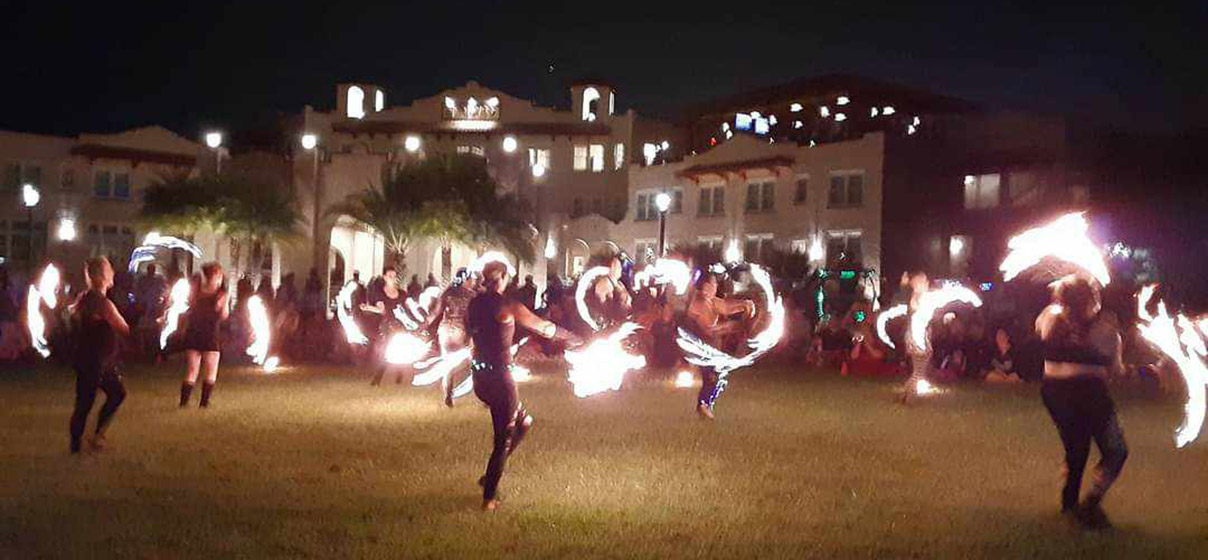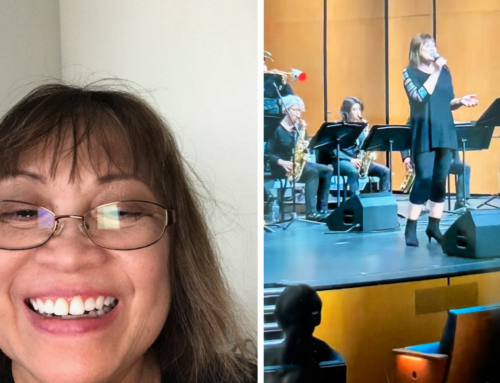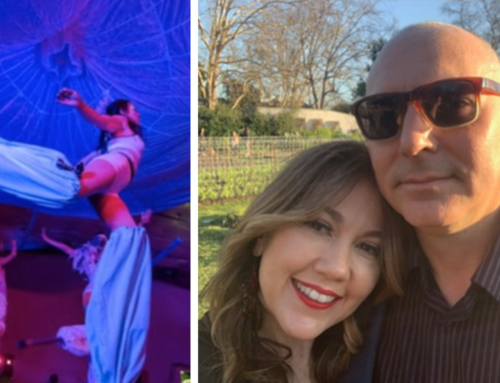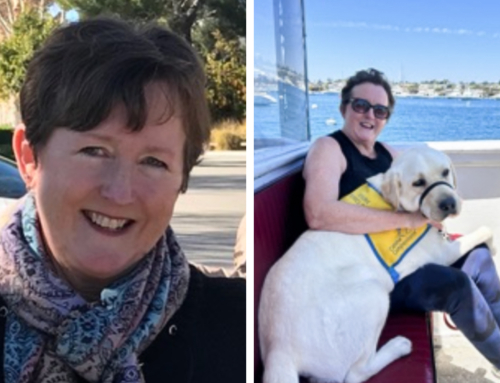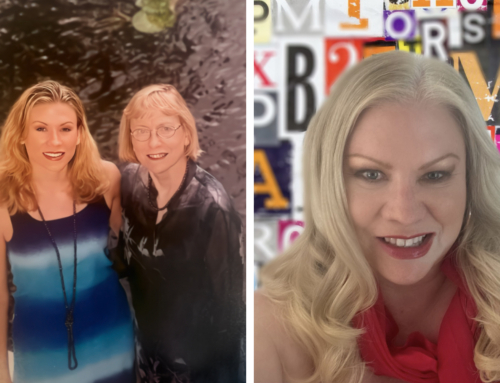“I am 100% sure that had I not been diagnosed with breast cancer I would not be doing this work. Working in a company like PreludeDx on the diagnostic side, I’m able to touch far more lives than I could if I was still in practice as a Physician Associate. I can get in front of 30 – 40 physicians over 6 months and help hundreds of women with decisions regarding their cancer diagnosis. I feel like I’m still involved in patient care. I just get to do it on a broader level where I’m impacting providers with a fundamental practice changing technology. PreludeDx is changing the status quo and making sure that these women have the information that they need.”
In honor of National Medical Science Liaison (MSL) Awareness and Appreciation Day on March 27, PreludeDx is recognizing its own Leona Hamrick, DHSc, PA-C, MSL-BC, Senior Director of Global Medical Affairs. Medical science liaisons are scientific experts who play a significant role in educating physicians and ensuring valuable diagnostics and therapeutics are successfully implemented in everyday practice. One of the primary areas of focus for the MSL role is to establish and maintain peer-to-peer relationships with leading physicians.
Dr. Hamrick is uniquely qualified for this critical role with PreludeDx. She has been on both the health care provider side and patient side. “I began practicing medicine in 1997. I was seeing 3 patients every 15 minutes. That is a grueling pace. So, when I was diagnosed with breast cancer, I decided to slow down and take the time to consider other options.”
My Cancer Journey
“In 2014, at age 38, I was diagnosed with breast cancer. I had been outside with my dogs, and I was putting my hair up when I found a swollen spot in my right armpit. I had received a prescription for a mammogram a few months earlier but hadn’t made the appointment yet. What was the rush? I was 38 and had no family history of breast cancer. Well, things just got a whole lot more urgent!”
“So, I had the mammogram which revealed an enormous mass that was not palpable. The next day I went in for a biopsy and the following day it was confirmed cancerous. Within three days, I went from being a normal, active 38-year-old to having a breast cancer diagnosis. That was the start of 18 months of consistent treatment.”
“Initially, we thought that it would be a pretty minor surgery, but it turned out to be stage 3, meaning it was in four of my lymph nodes. I had gone into the surgery requesting a mastectomy. I ended up having a mastectomy with a full axillary dissection. It has been 10-years, and I still can’t feel anything from my elbow up.”
“I used to say, ‘I’ll never do chemo if I get cancer.’ Well, this was certainly a never say never moment for me. And I didn’t just have chemo; I had the red devil (doxorubicin), which is cardiac toxic. Next, I was recommended hormone therapy, but I just couldn’t handle the side effects. I decided to do a complete hysterectomy instead, which resulted in massive complications. And let’s not forget reconstructive surgery on my breasts. After a number of surgeries, I still wasn’t happy with how I looked. So, I tried one more surgery several years after my initial diagnosis. I’m still not completely happy with the result, but a colleague of mind put it like this, ‘It’s not when you’re happy with how you look after you’ve been through this. It’s when you’re tired of having surgeries.’ So true!”
Leveraging My Experience to Help Physicians and Patients
“This experience has given me tremendous insight and empathy for women who are going through this journey. I made a conscious decision when I was diagnosed to give up my practice. I was a single income household, but I wanted to focus on getting well. When I returned to the workforce, I went into academics. I was fantastic at academics – keynote speaker at graduation – and the students loved me. But it wasn’t the right field for me. And then I learned about the field of medical affairs and medical science liaisons. I felt that this was an opportunity to leverage my medical training and make a difference for entire patient groups and their physicians. I started with a cardiology company and strategically built my career to get to oncology and specifically breast cancer.”
“I am 100% sure that had I not been diagnosed with breast cancer I would not be doing this work. And working in a company like PreludeDx on the diagnostic side, I’m able to touch far more lives than I could if I was in practice. I can get in front of 30 – 40 physicians over 6 months and help impact hundreds of women with their cancer diagnosis. So, I feel like I’m still involved in patient care. I just get to do it on a broader level where I’m impacting physicians with a fundamental practice changing technology. PreludeDx is changing the status quo and making sure that these women have the information that they need.”
“My personal experience makes me a credible conduit to the physician. I can address them on a medical / scientific level, as well as a breast cancer survivor! I think that the patient’s voice is increasingly important. We are seeing large organizations and associations involve patient advocates because they recognize the beauty and importance of having the patient’s voice. I like to remind my colleagues that behind every test, there’s a patient, there’s somebody like me. That’s why we’re here.”
Information is King is Cancer Care
“I often say, ‘I’m not special. I’m 1 in 8 women who are diagnosed with breast cancer.’ Unfortunately, it is an exceptionally common diagnosis. I am approached many times a year by friends or friends of friends who are recently diagnosed and want my help. One of the most important things I learned in my journey is that women need information to make the right choice. Too often women are not given an opportunity to process and digest information and thoroughly understand what’s happening. And no one stops to explain. You’re not just going to have a mastectomy; you’re going to have surgeries for years and you’re going to have complications and things are going to go wrong and you’re not going to like the way you look.”
“That is why I am so passionate about our test, DCISionRT, for ductal carcinoma in situ (DCIS). The DCISionRT biosignature test combines 7 biomarkers and 4 traditional clinicopathologic factors – age, palpable, lesion extent and margin status – to achieve a significantly validated, prognostic risk of an in-breast recurrence and predictive benefit of radiation therapy. This is critical information that helps a patient and her physician make a more informed treatment decision.”
Advice for patients
“My best advice for breast cancer patients is ‘stop and take a breath’. Cancer is ridiculously scary; it’s paralyzing. But patients need to take a second, gather all the information, and then make the best decision for them. Patients should fight for all the information, all the advanced testing.”
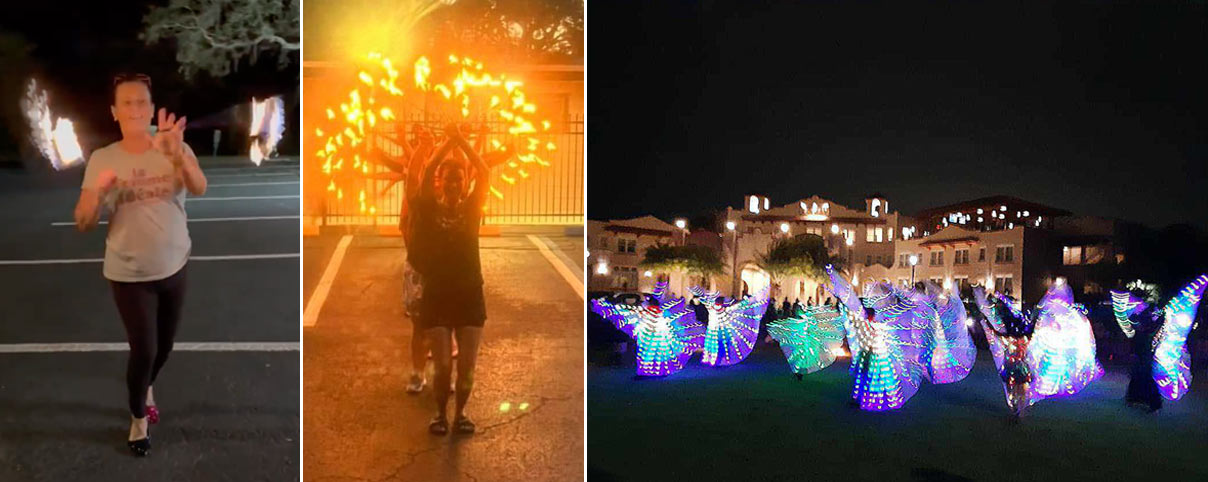
Zest for Life
“I have a tremendous lust for life. I traveled extensively before I was diagnosed, and I continue to travel. I have been to all 50 states and more than 100 countries. I have 4 animals I love and adore. I’m part of an all women dance troupe that supports our community by dancing on the weekends, raising money for a women’s shelter. For me, cancer has made all those things more valuable because you want to embrace your friends and family, your travel, your love, and your community because you just don’t know.”
“Everything about cancer sucks. And I would do every bit of it again because of where I am now. I’m a more grateful person, a more aware person. I recognize the value of the small things and the joy that life can bring.”

